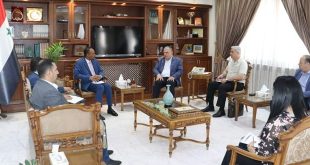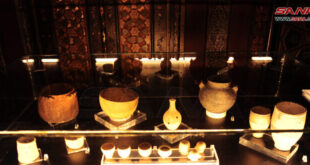Damascus, SANA – Representative of Food and Agriculture Organization (FAO) in Syria Eriko Hibi said that the Organization’s work in Syria during the crisis was initially limited to providing urgent humanitarian aid to affected people, and currently it seeks to support them and help them recover their livelihood sources in the future.
In a statement to SANA, Hibi said that the FAO will shift from providing urgent food aid to beneficiaries to providing support that will allow them to grow and produce their own food and make a living.
She said that during the past three years, the FAO attempted in cooperation with the Agriculture Ministry to access all areas to provide aid and support farmers and livestock breeders who were affected by the crisis as well as people working in agricultural manufacturing.
Hibi explained that the FAO’s work mechanism depends on the nature of the targeted area in terms of security, possibility of accessing beneficiaries, and the number of displaced people, adding that the Organization also contributed to join aid convoys sent by the UN to areas that are difficult to access, providing packages of vegetables seeds so that locals in these areas can grow vegetables in their homes whether in balconies, small plots of land, or even in small boxes.
Regarding the programs for livestock, she said the FAO helped treat 9 million animals from parasitic infections in various areas during the past year.
On the FAO’s work in 2016, Hibi said there’s always a desire to meet the needs of farmers, breeders, and beneficiaries to the utmost possible degree, particularly in the field of food security, noting that the Organization requested USD 85 million to help beneficiaries in Syria, but the actual funding it procured was between 16 and 18 million, which shows the large gap between actual needs and available funds.
“One of the problems facing the FAO’s work is that people outside Syria aren’t aware that its farmers are still capable and willing to produce food themselves and are continuing with their lives. One of the misconceptions abroad is that Syria no longer has good production, but the fact is that Syrians are present in their lands and still need to produce food and continue their work in agriculture, and we mustn’t ignore providing support for them,” she stated.
Hibi also underlined several threats to the agricultural sector and food security in Syria, such as climate change, recurring droughts, and loss of biodiversity, asserting that the FAO will focus on addressing these threats by supporting efforts to combat desertification, preparing for droughts, and so on.
Hazem Sabbagh
 Syrian Arab News Agency S A N A
Syrian Arab News Agency S A N A




